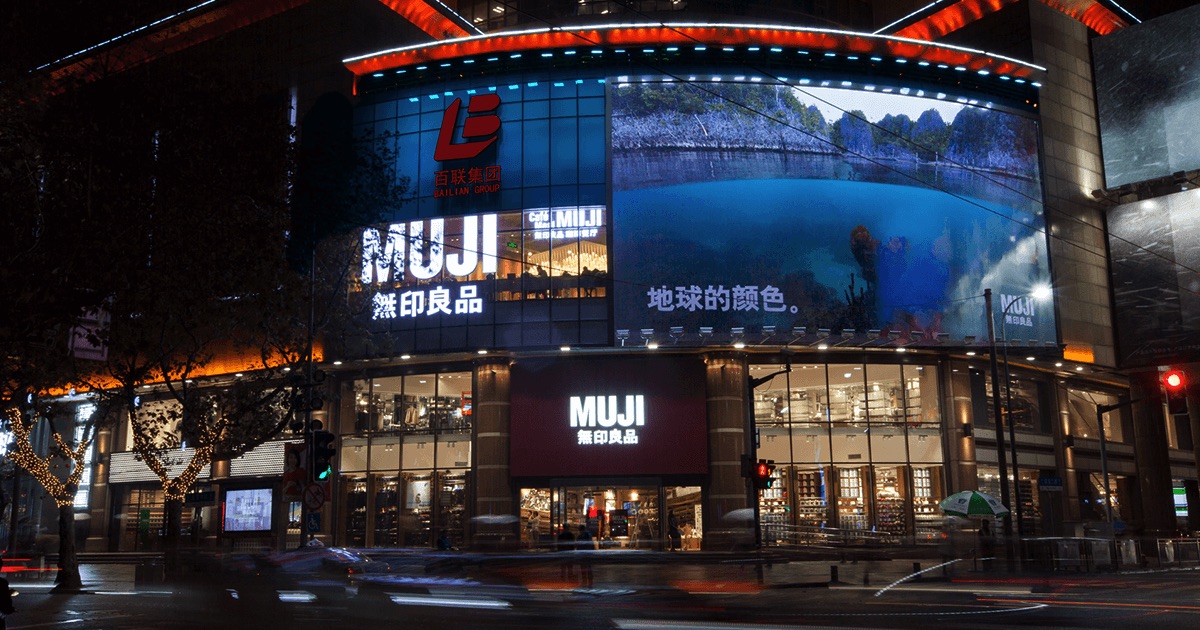MUJI is latest foreign company to apologize to China, for ‘French Concession’
MUJI is latest foreign company to apologize to China, for ‘French Concession’

Japanese lifestyle brand MUJI has apologized (in Chinese) for describing the location of a recent sponsored event in Shanghai as “in the French Concession” (法租界 fǎ zūjiè), following complaints from a number of internet users who slammed it for being culturally insensitive and disrespecting Chinese history.
The Weibo post that landed the retailer in trouble was published on September 10. The jogging event that MUJI tried to publicize was called “Urban walker — Turn right at red lights in the French Concession,” and it was set to take place in…the French Concession, a heritage neighborhood in Shanghai that was under the authority of the French Consul from 1849 to 1946.
The promotional post reads: “Start from MUJI’s Huaihai 755 flagship store and jog on tree-lined avenues in the French Concession. At crossroads, turn right at red lights and stay straight at green lights.”
Factually speaking, calling the area where MUJI was about to hold the event “the French Concession” is correct. In fact, while it’s been decades since the concession came to an end, the neighborhood is still locally and universally known as “the French Concession,” where you can find plenty of Europe-inspired architecture and leafy trees that line the streets. Also crowned “the Paris of East,” the area is carefully preserved by the local government due to its uniqueness and historic significance.
But those who found MUJI offensive saw the name in a different light. According to some angry Weibo users, “the French Concession” is a term from the past, something that reminds them of Shanghai’s “humiliating” history of being colonized. “I will boycott MUJI from now on. Since you have no respect for China, you shouldn’t be allowed to do business in China!” a Weibo user wrote.
Some other critics took specific issue with MUJI’s Japanese origin, claiming that given the fraught relationship between China and Japan, Japanese enterprises need to be extra careful about the way they approach Chinese customers. “This is not an isolated case. Japan, as a country, always supports Hong Kong’s and Taiwan’s independence. I don’t think MUJI insulted us unintentionally given the context,” a Weibo user commented.
The complaints kept piling up, to a point where MUJI felt the need to respond to the criticism and cancel the event. “We had no intention of harming national sentiment or disrespecting Chinese culture and history,” a representative from MUJI told Pear Video, a news portal based in Shanghai. It also pledged to organize more internal training for employees and have more people involved in the proofreading process for its posts on social media.
The apology, however, fueled further debate about whether “the French Concession” is an offensive name for the area. While a cluster of nationalists insisted that the name is “a symbol of humiliation,” some people chose to defend MUJI, arguing that the case has been completely blown out of proportion. Some of them pointed out since most Shanghai locals are comfortable with using “the French Concession” to refer to the neighborhood, MUJI was just the latest foreign brand that Chinese nationalists were eager to take down in today’s highly charged political climate. “Every day we find a new foreign company to boycott. Who’s next?” a Weibo user wrote.






